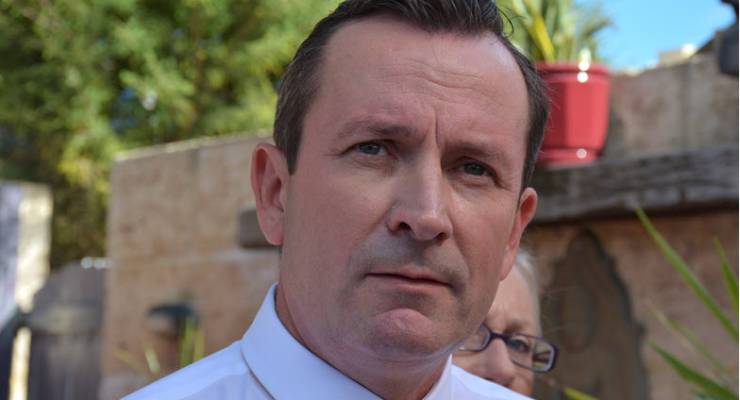
“Absolute power corrupts absolutely.”
— John Dalberg-Acton, 1887
One hundred and thirty years later, Dalberg-Acton’s is still one of the most recognised and used quotes in history, and never a truer word has been spoken. This truism comes into stark relief when we delve into the arcane world that is power politics within the Australian Labor Party.
The WA factional system has been dumped on its head, creating a major headache for the McGowan government, which was elected on a platform developed under the previous factional power structure within WA Labor. It likely spells a period that will be marked by instability as it relates to policy, party officials and state and federal preselections.
If I were WA Labor’s state secretary Patrick Gorman, I’d be looking far from comfortable, and looking over my shoulder for people like Maritime Union of Australia WA’s deputy branch secretary Adrian Evans. He appears safe for the time being.
So what exactly has happened? What was known as the WA Broad Left has traditionally been made up of United Voice (UV), Australian Manufacturing Workers’ Union (AMWU), Maritime Union of Australia (MUA), Construction, Forestry, Mining and Energy Union (CFMEU) and a collection of several other unions with smaller memberships.
[Remember when the CBA boss lectured unions about leadership best practice?]
That’s what matters when it comes to unions and power in the Australian Labor Party: membership numbers. Each union pays what is called a “capitation fee” per union member when they affiliate with WA Labor. For example, it is set out as being $5.50 per union member in Queensland Labor’s rules. When all was said and done, the Broad Left controlled around 65% of the floor of state conference, giving them ultimate power on policy and rules, party official and committee appointments and state and federal candidate preselections. In many settings, the WA Labor state executive, which is appointed partially by the state conference and partially by local rank-and-file members, carries a disproportionate weighting in preselections.
Despite this rank-and-file vote, the same powerful union forces still end up dominating these elections and ensuring their backed candidates win.
Local electors can have a 60% weighting over union votes in preselections but, once again, the local union forces will have secured a good proportion of those rank-and-file electors by virtue of faction or union membership. The dominant union on the Right, head and shoulders above the Australian Workers’ Union (AWU) or Transport Workers’ Union (TWU), is the historically conservative Shop, Distributive and Allied Employees Association (SDA).
Due to being in the minority faction, the SDA, no matter how big and powerful it was, paled next to UV, the powerhouse Left union.
[That was then, this is now: Martin Ferguson’s head-spinning 180 on union power]
While all unions are required to report their union membership annually under federal law, they don’t all break down their membership numbers by state. Most unions don’t break down their WA branch union membership. Normally, this is how factional Labor politics plays out. The minority faction remains the minority faction until such time as they rally the troops and surpass their rivals through a combination of building their union memberships and getting rank-and-file party members to elect their factionally aligned delegates to state conference.
Over recent months, however, the years of ructions and personality tensions within the Broad Left finally brought its time in power to a shuddering halt. Being elected solidly into government and being in power seems to have galvanised aggrieved forces within the Broad Left, who might have been willing to play nice while they were in electioneering mode, into action. After what is believed to be six months of negotiations, the CFMEU and MUA walked out on the Broad Left, taking their conference delegates with them. According to my calculations, he CFMEU controls about 10% of the state conference floor and the MUA about 3%.
This takes the Broad Left from a solid 65% control of the party to what is reported to be a slight minority share of delegates to state conference. I predict a period of fierce union membership building and factional recruitment that can’t be good for the McGowan government. When these battles break out there are invariably branch stacking scandals and the like. Power has now shifted, but why, and what has it shifted to?
*Stay tuned for part two for the answer to these important questions for the McGowan government







Just more dog-whistling about ‘bad’ unions…and by association, bad Labor party government.
And how dare you write under the name Ben Chiefly…one of the greatest PM’s this country has ever had…just to disrupt an abuse the Labor movement.
If the workers in this country had half a brain between them, they would be flocking to join their relevant union before their wages and working conditions become intolerable. The feds are doing this by stealth…someone needs to WAKE UP in this country.
The trouble with ‘well known’ quotes – “one of the most recognised and used ..” is that too often they are not accurate.
What he wrote was, “Power tends to corrupt and absolute power tends to corrupt absolutely”.
If we had pollies with the common weal in mind and some moral/ethical structure to their lives then this “tendency” would not be a problem.
Alas, this is Oz, where the men-without-navels, those who stay on & on and stack the chairs when anyone with a life has gone home, who get the safe seats and the soft leather under their shiny arses.